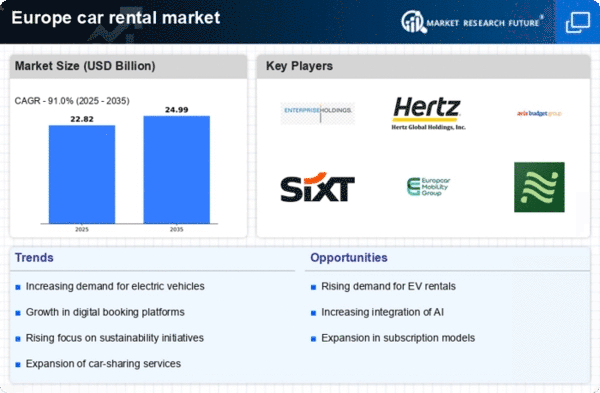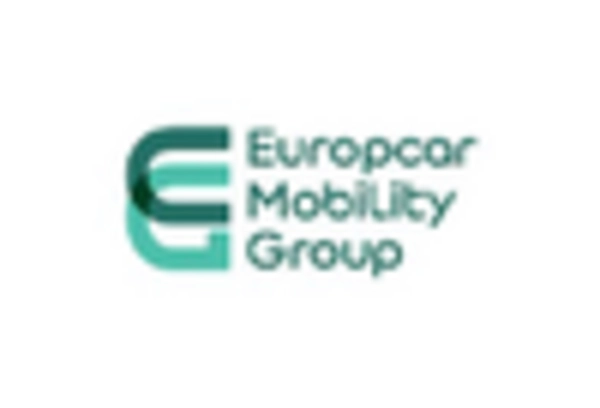Market Analysis
In-depth Analysis of Europe Car Rental Market Industry Landscape
The market dynamics of car rental services in Europe reflect a complex interplay of factors influenced by the region's diverse travel patterns, economic conditions, and shifting consumer preferences. Europe boasts a robust car rental industry, driven by a combination of tourism, business travel, and local transportation needs. The market is characterized by both global players and regional companies, each navigating challenges and opportunities unique to the European landscape.
Tourism plays a pivotal role in shaping the car rental market dynamics in Europe. The continent attracts millions of tourists annually, and many visitors opt for the convenience and flexibility offered by rental cars. This demand is not evenly distributed across the region, with popular tourist destinations experiencing higher rental activity. The Mediterranean countries, for instance, witness a surge in car rental bookings during the peak vacation seasons. This uneven distribution creates localized dynamics within the overall European market.
Economic factors also exert a significant influence on the car rental market in Europe. Economic downturns can lead to reduced business travel and discretionary spending, impacting the demand for rental cars. Conversely, periods of economic growth tend to stimulate both business and leisure travel, positively affecting the car rental industry. Furthermore, fluctuations in fuel prices and vehicle maintenance costs can influence pricing strategies, impacting the competitive landscape among rental companies.
The rise of shared mobility and alternative transportation options has introduced a new dimension to the market dynamics of car rentals in Europe. Ride-hailing services and car-sharing platforms have gained popularity, especially in urban centers, offering consumers additional choices for short-term transportation needs. Car rental companies are adapting to this shift by incorporating flexible rental options and exploring partnerships with mobility service providers, seeking to remain competitive in an evolving transportation ecosystem.
Environmental considerations are increasingly shaping the market dynamics of car rental in Europe. With growing awareness of climate change and sustainability, there is a rising demand for eco-friendly transportation options. Car rental companies are responding by adding electric and hybrid vehicles to their fleets, aligning with European Union targets for reducing carbon emissions. This eco-conscious approach not only meets regulatory requirements but also appeals to environmentally conscious consumers, influencing their choice of rental provider.
Regulatory frameworks and policies within Europe also play a crucial role in shaping the car rental market. Each country has its own set of regulations governing the industry, including licensing requirements, insurance standards, and environmental regulations. Car rental companies must navigate this regulatory landscape, ensuring compliance while adapting to evolving legal frameworks. Harmonization of regulations across European countries is an ongoing process, impacting the standardization of certain practices within the car rental sector.
Technological advancements are transforming the customer experience and operational efficiency within the European car rental market. Online reservation systems, mobile apps, and digital platforms have become integral to the rental process, allowing customers to easily book, modify, and manage their rentals. Additionally, technology is being leveraged for fleet management, predictive maintenance, and customer service, enhancing overall operational effectiveness for rental companies.
The market dynamics of car rental services in Europe are shaped by a myriad of factors, including tourism patterns, economic conditions, shared mobility trends, environmental considerations, regulatory frameworks, and technological advancements. The industry continues to evolve as it responds to changing consumer preferences and external influences, creating a dynamic landscape for car rental companies across the diverse and multifaceted European market.


















Leave a Comment